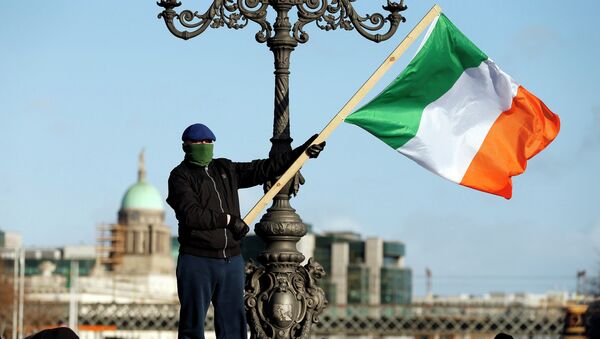The Republic of Ireland may be the next country heading for the door following Britain’s historic vote to abandon the muddled European experiment with a group called “Ireland Exit” agitating for a “respectful and mature” debate on whether the Irish should remain a part of the 28-country bloc.
"This debate must take place in a respectful and mature way by all sides and have the long term best interests of Ireland and our future generations at its core," says the group’s spokesperson.
"We are a centre leaning political group who believe the time is right for Ireland to hold a referendum on our continued membership of the European Union."
What once was seen as impossible may make sense for the Irish argues the group appealing not only to issues of migration and undemocratic laws forced through by an overbearing European Commission, but rather to simple economic logic – it may cost more to be in the EU than out of it.
A briefing by Ireland’s finance ministry revealed last month that while "Ireland has been a significant net beneficiary from the EU Budget since accession in 1973… 2014 represented the first time that Ireland was a small net contributor." Campaigners claim that the Republic of Ireland lost a total of €136 million ($150 million).
With the country rebounding successfully from the 2008 financial collapse and being a prime destination for corporations looking for a solid workforce along with lower tax burdens, it seems that Ireland may find its contribution growing relative to its partner countries.
Ireland’s pursuit for lower corporate taxes to attract foreign direct investment may also be under assault if they maintain their presence in the European Union with Brussels planning to force a continent-wide "tax harmonisation" plan that would disproportionately harm Ireland’s economy.
Irish MEP Brian Hayes warned this week that any attempt by the bureaucrats in Brussels to force a higher corporate tax rate against the will of the Irish voters would be met with an immediate decision by the country to leave the European Union.
"This is the absolute red line issue. Any attempt to cajole us, as far as I’m concerned, we’re out the door," said Hayes. "We cannot be tied into an anti-business, anti-growth pact while the Brits are allowed to move on. We have a lot more to lose than anybody else."
Several other countries with non-traditional tax systems, such as Greece, may quickly join behind them when the inevitable assault on their democratic choice comes to fruition.
Still, the Irish people remain thoroughly rooted in European culture with a friendly view towards migration, an appreciation of free trade, and a clamoring to remain enmeshed with Europe’s other cultures.
A recent poll confirmed that 69% of respondents thinking that it would be foolhardy for the Irish to lose their European identity – a result certainly impacted to a large degree by the chaos that has engulfed the UK in the wake of the Brexit vote.
Nonetheless, things may change quickly if the European Commission has its way forcing many hardworking Irishmen to the unemployment line. The whole country may just decide to head for the exit instead.






